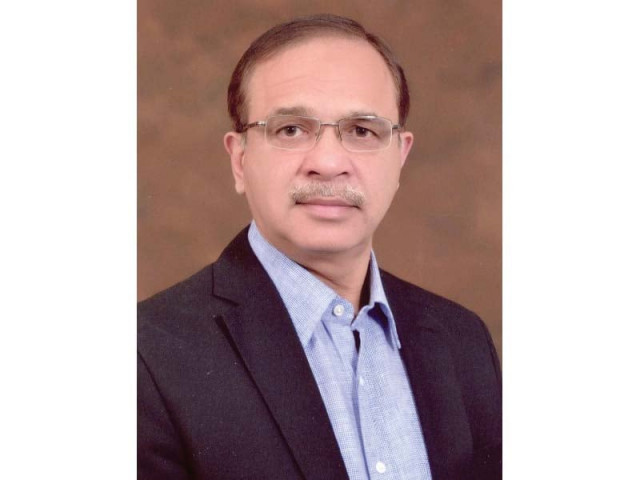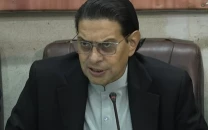Changes in higher judiciary: JCP recommends elevation of Justice Arab as SC judge
Also names Justice Sajjad Ali Shah as chief justice SHC

Justice Faisal Arab. PHOTO: FILE
The Judicial Commission of Pakistan (JCP) has recommended the elevation of the Sindh High Court (SHC) Chief Justice Faisal Arab as a Supreme Court judge. The JCP has also recommended appointment of Justice Sajjad Ali Shah as the new chief justice of the SHC.
The commission made these recommendations on Wednesday during its meeting which was chaired by the apex court’s Chief Justice Anwar Zaheer Jamali. During the meeting, the JCP representatives unanimously approved names of Justice Arab and Justice Sajjad Ali Shah for elevation as an SC’s judge and the SHC’s new chief justice, respectively.

Currently, sixteen judges are working in the apex court. However, after Justice Arab’s elevation the Supreme Court’s strength will complete. Justice Arab is also head of the three-judge Special Court, hearing the high treason case against former military ruler General Pervez Musharraf.
PBC objects to appointment of ad-hoc judge
Meanwhile, the Pakistan Bar Council (PBC) has expressed grave concern over the JCP’s desire to appoint ad-hoc judges at the Supreme Court. In a statement, the PBC said any such move would severely undermine independence of the judiciary and people’s confidence on it.
Chief Justice Anwar Zaheer Jamali has summoned a meeting of the JCP in Lahore on December 3 to consider the reappointment of two retired judges – Tariq Pervez and Khilji Arif Hussain.
The PBC said there are several unanimous resolutions of the PBC and the Supreme Court Bar Association, opposing such appointments. “A judge, who has retired, must not be encouraged to be reappointed as it affects the image of the institution. This practice had dragged down the image of the Supreme Court earlier because of constant adhocism,” it adds.
The PBC urged that the JCP reverse its decision as it might give temporary relief but in the long term it might place an objectionable precedent that has been criticised by every faction of the bar councils and bar associations.
Published in The Express Tribune, November 26th, 2015.



















COMMENTS
Comments are moderated and generally will be posted if they are on-topic and not abusive.
For more information, please see our Comments FAQ